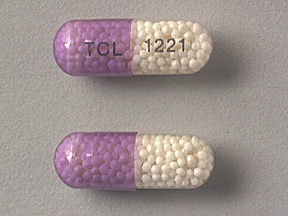
Nitro-time Coupons & Savings Card – Discount Prices from $34.00
Brand for: Nitroglycerin er
My prescription
Edit
2.5MG, Nitroglycerin ER (90 Capsule Extended Releases)
Select pharmacy

CVS
$68.05
COUPON PRICE
Walgreens
$34.00
COUPON PRICE
Walmart
$34.92
COUPON PRICE
Albertsons
$61.09
COUPON PRICENitro-time savings card
Show this card to your pharmacist
Walgreens
$34.00
BIN
ID
PCN
GRP
015995
LHKPV488176
GDC
DR33
Powered by
Related nitrates prescriptions
More prescriptions for angina
Related nitrates prescriptions
More prescriptions for angina
Price history for Nitro-time (brand) & Nitroglycerin ER (generic)
90 Capsule Extended Releases, 2.5MG
Average retail price for Nitro-time
Average retail price for Nitroglycerin ER
Average SaveHealth price for Nitroglycerin ER
Our price history data is based on aggregated prescription data collected from participating pharmacies in America. Our prescription data updates daily to reflect the latest price changes. If you notice a missing data point, it means there wasn't sufficient data available to generate a monetary value for that date.
Over the last 12 months, the average discount price of Nitro-time is $55.78 using the SaveHealth savings card. That's an average savings of -32.84% on Nitro-time with our discount card.
*Retail prices are based on pharmacy claims data, and may not be accurate when we don't have enough claims.
Nitro-time (Nitroglycerin ER) dosage forms
Dosage Quantity Price from Per unit 2.5MG 90 Capsule Extended Releases $34.92 $0.39
| Dosage | Quantity | Price from | Per unit |
|---|---|---|---|
| 2.5MG | 90 Capsule Extended Releases | $34.92 | $0.39 |
What is nitro time used for?
Nitro-Time is used to prevent chest pain (angina) in people with a certain heart condition called coronary artery disease. It works by relaxing and widening blood vessels so blood can flow more easily to the heart.
Using the SaveHealth discount card, what is the price of Nitro-time without insurance?
Using the SaveHealth discount card, the price of Nitro-time without insurance is $34.00.
What is the price of Nitro-time at CVS?
The price of Nitro-time at CVS is $68.05.
What is the price of Nitro-time at Walgreens?
The price of Nitro-time at Walgreens is $34.00.
What is the price of Nitro-time at Walmart?
The price of Nitro-time at Walmart is $34.92.
